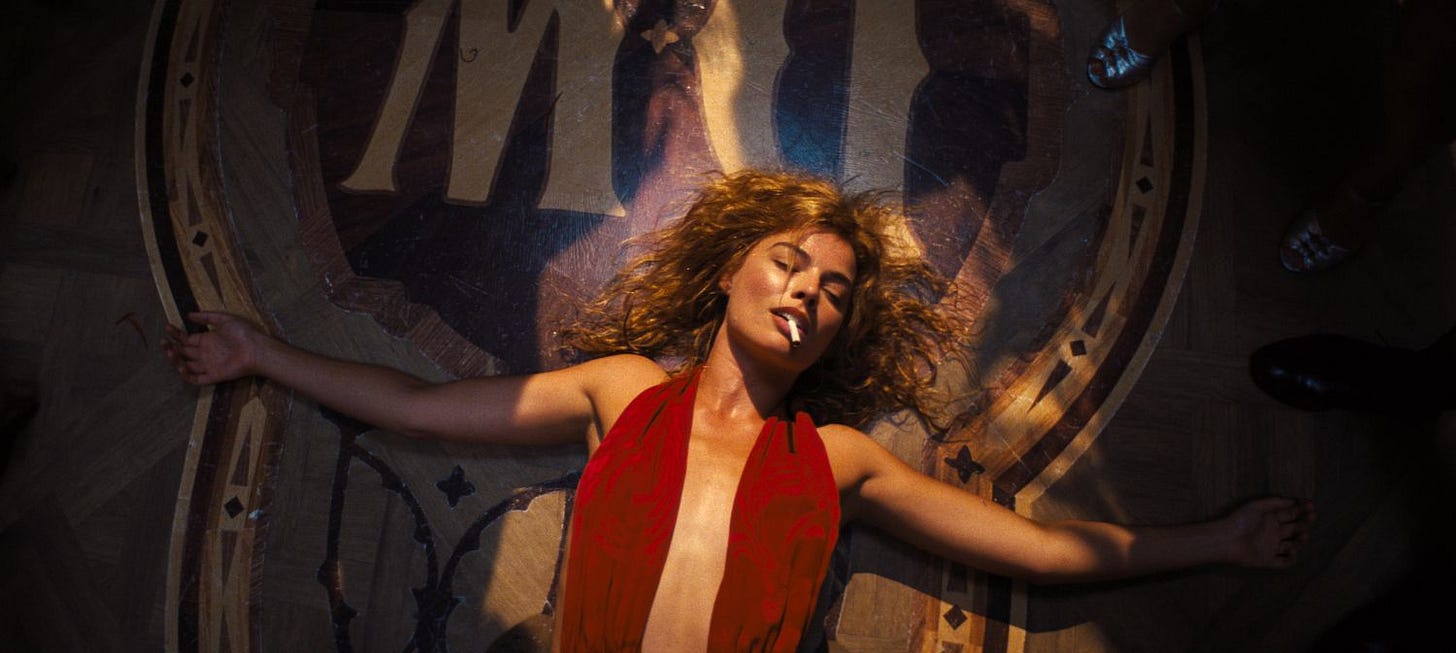Review: "Babylon" bemoans the same all-consuming crush of progress that it faces in theaters today.
Damien Chazelle's wild ode to the bygone silent film era comes at a time when the landscape of movies is changing yet again, nearly a century later.
If you go see “Babylon” in theaters (and odds are, you won’t), you will be greeted by a public-service message from two of the film’s stars – Margot Robbie and Diego Calva – thanking you for seeing it in an actual theater where the energy is “electric”. I squirmed in my seat at the use of that word, and I assume the other 4 people in my 100-plus-seat theater did, as well, because like this one, in theaters across the country this past week, “Babylon” has been a considerable flop, making just $3.6M in its opening weekend.

The irony is hard to ignore.
Hollywood wonder-boy Damien Chazelle’s latest film (he of “Whiplash” and “La La Land” fame) is a whole-hearted 189-minute epic about the raucous and promiscuous silent film era rife with unbridled creative freedom coming to a stand-still against the progress of sound, and with it, the heavy hands of capitalist studio meddling and compromise.
It is often a deliberately bawdy, lewd, and fiery thing – far from the twinkly, wide-eyed Los Angeles that was depicted in “La La Land”. It is also a deeply cynical movie, the kind of film that Paul Thomas Anderson would have made in his younger days. (“Boogie Nights” is one of many very obvious cinematic influences for Chazelle here.)
The other, most deliberate influence, is the 1952 classic “Singin’ in the Rain”. In that film, which “Babylon” sometimes borrows exact scenes, songs, and structures from, the silent era is similarly brought to a screeching halt, but it is depicted with a deeply nostalgic and humorous sensibility. “Babylon”, on the other hand, is not.
”The film views the studios which enable and exploit its employees for the next big thing as morally and artistically bankrupt.”
As the crush of progress tightens its grip around our once-euphoric and oft-inebriated central characters in the 2nd and 3rd acts, the shift is depicted as nothing short of traumatic. The film views the studios which enable and exploit its employees for the next big thing as morally and artistically bankrupt. The film industry is now a rigid money-making scheme that is more interested in commerce than it is in art.
Fast-forward nearly 100 years later, which the movie actually does, in a stunningly brazen final scene: a montage of clips from a century of films all the way from “Singin’ in the Rain” to “Avatar: The Way of Water”. Chazelle, in his latest film which is currently getting smothered by James Cameron’s all-digital epic at the box-office, includes a literal clip from it in his closing statement about the death of unbridled artistry to the wheels of innovation. Perhaps “Babylon” was always destined to flop; maybe that’s the point.





